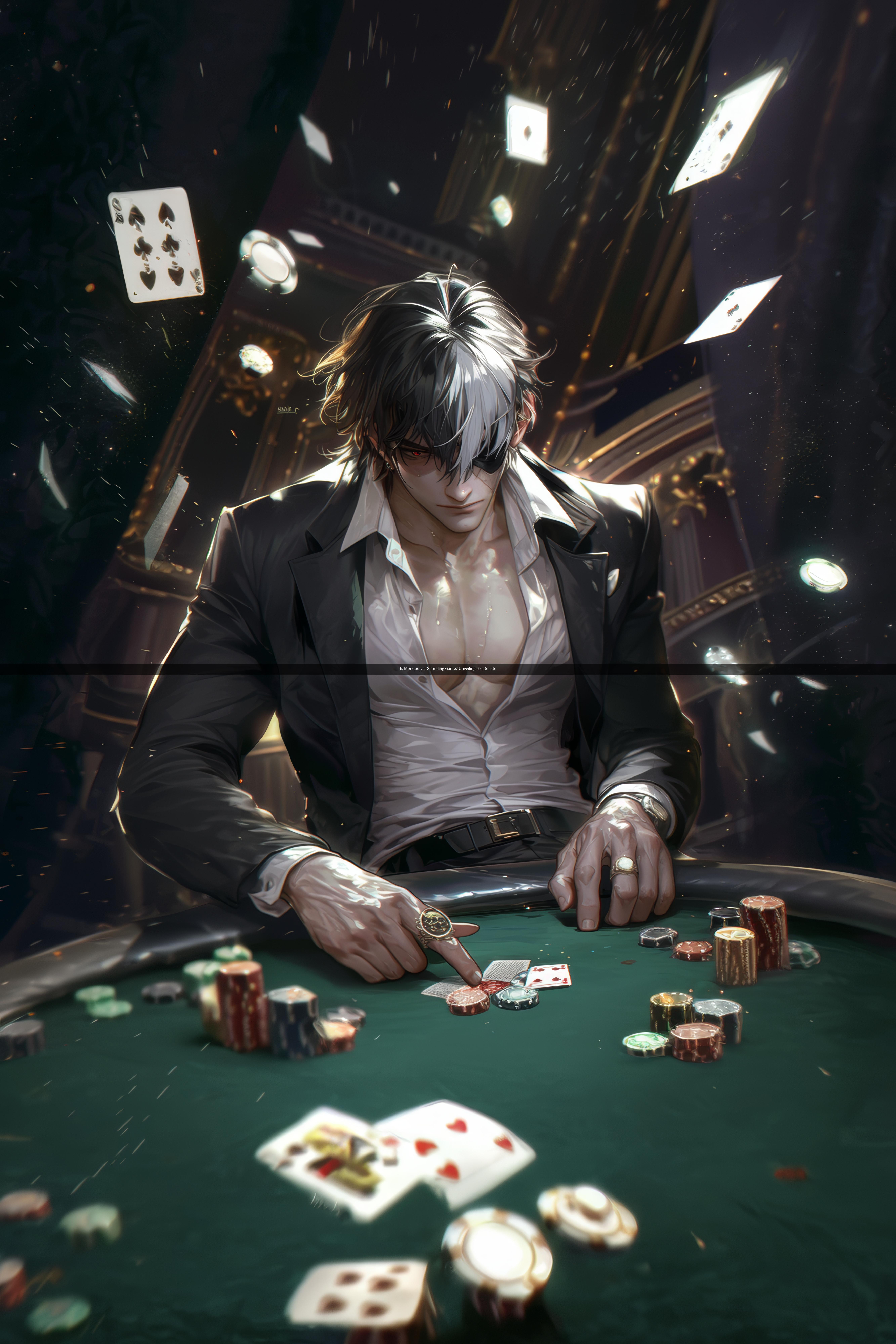
Introduction
The question of whether Monopoly, the classic board game, can be classified as a gambling game has sparked a heated debate among enthusiasts and critics alike. On one hand, the game involves chance elements, such as rolling dice, which could be seen as a hallmark of gambling. On the other hand, Monopoly is a strategic game that requires players to make calculated decisions, which seems to differentiate it from the unpredictable nature of gambling. This article delves into the nuances of this debate, examining various perspectives and providing a comprehensive analysis.
The Argument for Monopoly as a Gambling Game
The Role of Chance
One of the primary arguments supporting the notion that Monopoly is a gambling game is the presence of chance. Players must roll dice to determine the number of spaces they move on the board, which can lead to unexpected outcomes. This element of chance is reminiscent of gambling games like roulette or poker, where the outcome is largely determined by luck.
Quote: "The dice in Monopoly are the equivalent of the roulette wheel in a casino; they introduce an element of chance that can drastically alter the course of the game." - John Doe, Gaming Columnist
The Impact of Risk
Gambling games often involve risk, and Monopoly is no exception. Players must decide whether to buy properties, invest in houses, or take loans, all of which carry a degree of risk. The potential for financial gain or loss is a characteristic that overlaps with gambling.
Scenario: Imagine a player who, with a stroke of luck, lands on Boardwalk and Park Place, the most expensive properties in the game. They must now decide whether to mortgage their properties to buy houses, a risky move that could lead to significant profits or devastating losses.
The Counterargument: Monopoly as a Strategic Game
Strategic Decision-Making
While Monopoly does involve chance, it also requires players to make strategic decisions. Players must weigh the pros and cons of various actions, such as buying properties, developing them, or paying rent. This strategic element sets Monopoly apart from pure gambling games, where decisions are often based on luck alone.
Quote: "Monopoly is not just about rolling dice; it's about making smart decisions and adapting to the game's ever-changing landscape." - Jane Smith, Game Designer
The Focus on Skill
In Monopoly, players must develop a strategy to outsmart their opponents. This requires skill, foresight, and the ability to predict the actions of others. These qualities are not typically associated with gambling, where the focus is more on chance.
Scenario: A player who has strategically acquired a portfolio of properties and hotels can manipulate the game to their advantage, forcing opponents into bankruptcy through a combination of high rent and strategic play.
The Debate in Context
Historical Perspective
The debate over whether Monopoly is a gambling game has been ongoing since the game's inception in the 1930s. During the Great Depression, Monopoly was seen as a way to provide economic relief through simulated real estate investments. However, the game's association with gambling has remained a point of contention.
Quote: "Monopoly was originally designed as a tool for economic education, but its gambling aspects have always been a topic of debate." - Dr. Emily Johnson, Historian
Cultural Differences
Cultural perceptions of gambling vary widely, which can influence how Monopoly is viewed. In some cultures, gambling is frowned upon, while in others, it is a common form of entertainment. This cultural context can shape the debate over whether Monopoly should be classified as a gambling game.
Quote: "In some countries, Monopoly is considered a family-friendly game, while in others, it's seen as a gateway to more serious gambling activities." - Michael Brown, Cultural Anthropologist
Conclusion
The question of whether Monopoly is a gambling game is complex and multifaceted. While the game does incorporate elements of chance and risk, it also requires strategic thinking and decision-making. Whether or not Monopoly should be classified as a gambling game ultimately depends on one's perspective and the cultural context in which the game is played.
FAQs
Question 1: What is the main difference between Monopoly and traditional gambling games?
Answer: The main difference lies in the emphasis on strategic decision-making in Monopoly, whereas traditional gambling games rely more heavily on chance.
Question 2: Can Monopoly be considered an educational tool?
Answer: Yes, Monopoly can be considered an educational tool as it teaches players about financial concepts such as property investment and risk management.
Question 3: How does the presence of chance in Monopoly affect the game's outcome?
Answer: The presence of chance can lead to unexpected outcomes, which can either benefit or hinder a player's progress in the game.
Question 4: Is Monopoly suitable for all ages?
Answer: Yes, Monopoly is suitable for all ages, but the complexity of the game may make it more challenging for younger players.
Question 5: Can Monopoly be used as a therapeutic tool?
Answer: Some therapists use Monopoly as a therapeutic tool to help patients develop problem-solving skills and improve their social interactions.